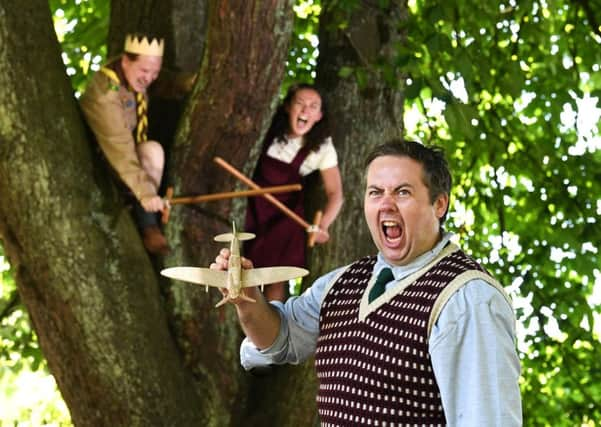Theatre review: Henry V


Henry V, Botanic Gardens, Glasgow ****
hrough his two great cycles of 15th century history plays, he marked out the boundaries of the land, scorning the French as the eternal enemy, and cheerfully mocking the Welsh for their accents, wizards and leeks; and in Henry V – the last of the plays, written around 1599 – he writes his greatest celebration of English military success against vastly superior continental forces, and of victory won through an endearing combination of humble, down-to-earth leadership, and plucky determination on the part of a motley and not over-disciplined fighting force.
As many analysts of the Brexit phenomenon have pointed out, these ideas about England’s national identity have become part of the bloodstream of the nation over the last 400 years, reappearing time and again at moments of national crisis, not least during the Second World War, when Laurence Olivier created his famous film of Henry V. And now, here come the Bard In The Botanics team with a version not only set during the Second World War, but staged by a group of Enid Blyton-style schoolchildren, all hole-y jumpers and falling-down socks; children who will, if they are lucky, become the 70- and 80- year-old voters of today.
Advertisement
Hide AdWhat’s thrilling about Jennifer Dick’s adaptation and production, though, is that it not only sets the play is this uniquely resonant context – with the kids clutching their gas-mask boxes and running for cover as the sirens wail – but also ensures that once the action starts, brilliantly steered by Lyney-Anne Moffat’s bustling chorus, a series of profoundly serious grown-up performances emerge, not only from Adam Donaldson as Harry (clad in boy scout uniform, but a deadly warrior nonetheless) but – perhaps most significantly – from Natalie Lauren as Queen Katharine of France, no arrogant French villain (unlike her brother Louis, played with relish by Alan Mirren), but a wise princess, worthy, in the end, of the love Henry offers her, as a gesture of peace.
No playwright is more fiercely conscious than Shakespeare both of the glory and excitement of war –“Cry God for Harry, England and St. George!” – and of its cruel destructive horror; and this is a version of the play subtle, exuberant and thoughtful enough to make us ponder both the warlike energy this play famously celebrates, and the final quest for peace in Europe, symbolised by the marriage of Henry and Katharine, that remains a disputed part of England’s destiny, even today.
JOYCE MCMILLAN
Until 13 July